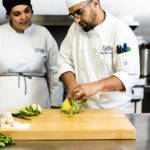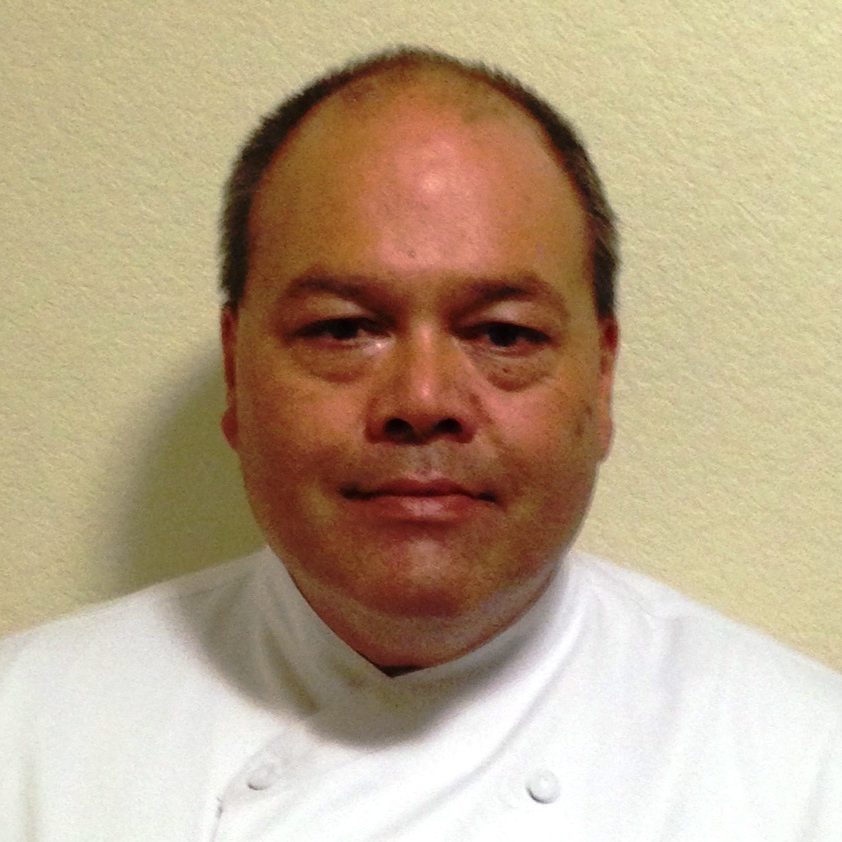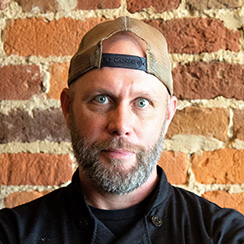Should you learn the craft of cooking or baking “on the job” or attend culinary school?
This is the question that aspiring culinarians ask—of themselves, and of experienced industry professionals. But the truth is, it’s not an “either/or” question. It’s an “and” question. You should learn in school and on the job.
Here’s why—and how it can be done.
Learning in School: Chef Education the Traditional Way
Why Attend Culinary School?
Culinary school will supercharge your education. Yes, you will learn a variety of skills in the workplace—over time. Although Auguste Escoffier School of Culinary Arts students do not graduate as chefs, it could take years to absorb the breadth of skills and techniques that you could learn in just 60-84 weeks of culinary school.
The commercial kitchen environment is fast-paced, and there may not be someone available to teach you good habits and proper technique like advanced knife skills and balancing flavors, leaving you on uneven ground. But in culinary school, professional Chef Instructors are dedicated to your growth and education. They are focused on making sure you learn each lesson before moving on to the next, and they’re available to answer your questions.
“The chef instructors [at Escoffier] truly care, and they will go out of their way, out of their personal lives, to ensure that students have a quality experience. What more can you ask for from your education?”
Shane Witters Hicks, Escoffier Boulder Graduate & Private Chef/Educator, The Soulful Spread
Plus, there are many topics covered in culinary school that you may not get the chance to learn until you reach a managerial position in the kitchen. Cost control and purchasing, recipe development, management —these skills can help you to accelerate your progress through the kitchen ranks if you bring them to the job with you.

Who Should Consider Culinary School?
Culinary school could be the right choice for any ambitious culinarian who sees the world of food as a career, not just a job.
Getting a formal education proves your passion for the culinary arts, and shows that you’re dedicated to mastery of your craft. This is the kind of person that employers look for when hiring for management and supervisor roles. So if you have leadership goals, there can be great career benefits to attending school.
It’s also a great fit for those looking for mentorship. Culinary students develop relationships with a number of Chef Instructors and staff who can help answer their questions and provide advice both during and after their programs.
Learning on the Job: Practical and Paid
Benefits of Learning on the Job
The skills that one learns on the job are not the same as those learned in culinary school—but they’re just as important.
In school, you learn many practical cooking skills, as well as the theory and background behind many culinary techniques. But in the workplace, you put it all to use while you learn both the menu and soft skills like adaptability and teamwork.
The “dance” of the kitchen is something you will perfect over time by working in busy restaurants and food service operations. Speed and efficiency are key skills for the kitchen, and they come from the daily practice you’ll get at work.
Plus, learning on the job brings you an income! If you have bills to pay and don’t have the resources to take time off from work while you study, a job is a must.

Chef Education and On-the-Job Training Are Two Parts of a Whole
The Benefits of a Two-Prong Approach
The combination of on-the-job training and culinary school lets you apply the skills that you’re learning in your courses to the day-to-day operations of the restaurant. And the speed that you’re picking up in your culinary job can help you to be more efficient in your schoolwork.
Future employers want to see experience on your resume. Escoffier students don’t graduate as chefs, but by studying and working at the same time you’re getting that much-needed experience. It’s an opportunity to show future employers that you’re not only educated, but that you know your way around the kitchen.
“I always felt that it is important to have education on your side to reinforce what you get in the workforce. Learning in school and learning on the job are very much different from each other. Today classical cooking and learning the basics of true culinary arts skills is not taught in the career world…and I feel that it is a core part of culinary arts that every chef should have the opportunity to learn.”
Anthony Avasakdi, Escoffier Online Culinary Arts Graduate & Manager of Culinary & Operator Support Services at Ventura Foods
Also, all students at Auguste Escoffier School of Culinary Arts must complete a culinary externship before they finish their programs. If you’re already working, your job may count as your externship!
How to Attend School While Working
Working and attending school at the same time may sound daunting. How can you balance both schedules and fulfill your commitments?
Online culinary school may be the answer.
Online programs offer the flexibility to work them into your busy schedule. You can complete your coursework on your own schedule, as long as you meet program deadlines. This means you won’t need to ask your employer for major concessions or schedule changes. If you work day shifts from 8:00am to 4:00pm, for example, you can complete your schoolwork after your workday is complete.

At Escoffier, each online student is assigned a Success Coach to help them to prosper during school. So if you are having trouble balancing the demands of work and school, they may be able to help.
“I couldn’t have [gone to culinary school] if it wasn’t online…I was working as the executive chef of a restaurant when I started culinary school…But it was totally worth it. And it was doable.”
Lance McWhorter, Escoffier Online Graduate; Executive Chef/Owner, Culture ETX; Food Network’s “Chopped” Contestant
Walk Both Roads to Your Culinary Future
No successful cook or chef can reach their full potential without an education and experience. They’re both important parts of a chef’s preparation. There’s a reason why many experienced chefs decide to go to culinary school after years in the industry. It’s because they know there’s more to learn, and that a kitchen classroom is the best place to learn it.
If you’re not working in the industry, there’s no time like now to start looking for your first position. At the same time, start the conversation with Escoffier to take the first step toward your education.
To learn more about culinary education, try these articles next:
- How Long Does it Take to Become a Chef?
- What the Future of Culinary Education Looks Like
- What Are the Types of Culinary Degrees and Diplomas?
*AESCA students do not graduate as chefs. We cannot imply our graduates are employed as chefs, after graduation.

 “The chef instructors [at Escoffier] truly care, and they will go out of their way, out of their personal lives, to ensure that students have a quality experience. What more can you ask for from your education?”
“The chef instructors [at Escoffier] truly care, and they will go out of their way, out of their personal lives, to ensure that students have a quality experience. What more can you ask for from your education?” “I always felt that it is important to have education on your side to reinforce what you get in the workforce. Learning in school and learning on the job are very much different from each other. Today classical cooking and learning the basics of true culinary arts skills is not taught in the career world…and I feel that it is a core part of culinary arts that every chef should have the opportunity to learn.”
“I always felt that it is important to have education on your side to reinforce what you get in the workforce. Learning in school and learning on the job are very much different from each other. Today classical cooking and learning the basics of true culinary arts skills is not taught in the career world…and I feel that it is a core part of culinary arts that every chef should have the opportunity to learn.” “I couldn’t have [gone to culinary school] if it wasn’t online…I was working as the executive chef of a restaurant when I started culinary school…But it was totally worth it. And it was doable.”
“I couldn’t have [gone to culinary school] if it wasn’t online…I was working as the executive chef of a restaurant when I started culinary school…But it was totally worth it. And it was doable.”